A look back at this year's CRBAM in Wuppertal
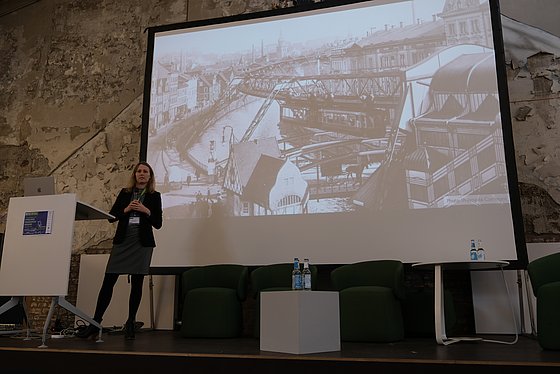
This year, the Chair of Bicycle Traffic had the honor of hosting the 7th Cycling Research Board Annual Meeting (CRBAM) in Wuppertal, bringing the CRBAM to Germany for the first time. The CRBAM is an international cycling conference that takes place every year, most recently in the Netherlands in Amsterdam.
After a long period of preparation, the event kicked off on October 25 and we welcomed 131 participants from 19 countries and 5 continents for an extensive three-day programand many exciting discussions.
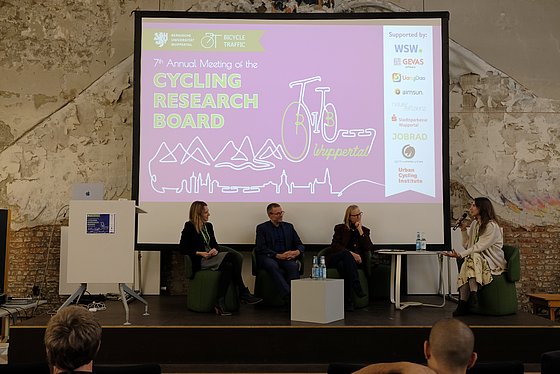
The conference was opened by keynote speeches from your Professor Dr.-Ing. Heather Kaths. Afterwards, the Lord Mayor Prof. Dr. Uwe Schneidewind, and the University Director Prof. Dr. Birgitta Wolff also welcoming the participants to Wuppertal. This was followed by a panel discussion that included an exchange about the how to enable and get young people excited to cycle as well as a debate on future opportunities for improvementings in cycling safety kicked off the content of the program. The full three-day program consisted of 28 sessions dedicated to the topics of Infrastructure & Design, Culture & Attitude, Modeling & Simulation and Policy & Decision-Making in various formats. A total of 95 speakers coming from many different disciplines presented shared their research work through interactive presentations and workshops, which was discussed interactively. This special interactive set-up enabled cross-diciplinary discussions among the participants with complementary and contrasting ideas and fields of expertise. In addition, with speakers and participants from different cities and countries, the discussions and feedback on the research presented at the CRBAM included perspectivies and impressions from around the world.
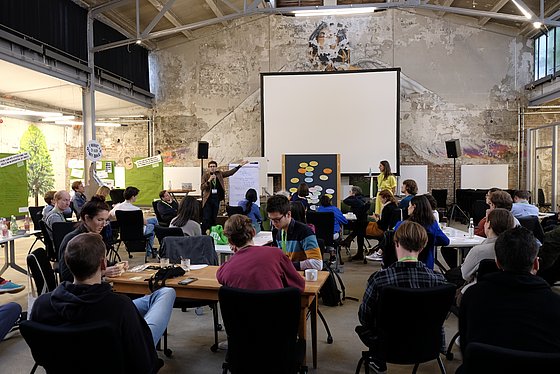
The benefit of these varying cultural and disciplinary perspectivies was highlighted during the fishbowl discussion held on the second day of the conference. During this discussion session, the following three controversial theses were debated: "Incremental change is more effective than disruptive change", "Bottom-up approaches are better than top-down approaches for creating new mobility offers", and "If we want to solve the systematic violence on our roads, the field of road safety should cease to exist immediately". These discussions were particularly informative as they allowed all conference participants to have an in-depth discussion about pressing issues in bicycle research.
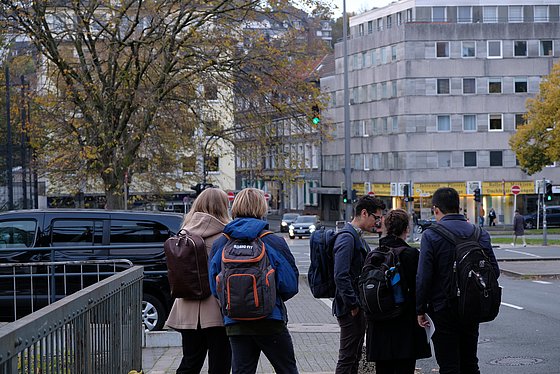
The program also included an Urban Design Rally. This was a friendly competition in which small teams of participants visited up to 6 different locations in Elberfeld in small teams to develop and sketch ideas for a innovative uses of these local spaces. Afterwards, the best three proposals were chosen by a vote participants and prizes were awarded to the teams with the winning proposal. Providing other outlets for the participants to learn about the local context for sustainable mobility in Wuppertal, representatives from the non-profit think thank Neue Effizienz organized walking tours in the mornings and hosted a poster gallery at the conference venue, the Codeks Factory. These activities, along with the rally, asked the participants a space to think about the transformation of infrastructure in Wuppertal and to exchange ideas about how to make it cycling city in the future. In this way, there were constant opportunities to engage with the local infrastructure and contribute ideas alongside the conference sessions.
A wonderful conclusion to the conference was the announcement that next year's CRBAM will take place from September the 4th to September the 6th at ETH Zurich in Switzerland.
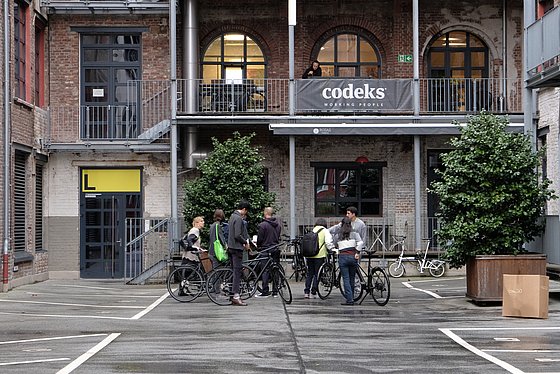
The CRBAM23 was made possible and enriched by many different players. WSW, LiangDao, Gevas and Aimsun sponsored the conference and JobRad and Barmenia provided donations to support this event. Additionally, the Stadtsparkasse Wuppertal hosted a welcome reception at the Stadtsparkasse tower on the first evening and CITYPANTA donated 10 conference participants to each use one of their e-bikes during the conference. The German Research Foundation (DFG) also supported the conference with its program for the promotion of international scientific events.
Further information can be found here.
